A Professor of Agricultural Economics and Farm Management at the University of Ilorin, AbdulAzeez Muhammad-Lawal, has charged government and other concerned stakeholders to ensure that the implementation of palliative measures are carried out with fairness, equity and efficiency in order to address the problem of emergency food insecurity facing the nation.
Prof. Muhamma—Lawal made the call while delivering the 244th Inaugural Lecture of the University titled “Making Ends Meet with Food Security” at the institution’s Main Auditorium.
The don, who is also the Director of the Regional Centre for Expertise in Education for Sustainable Development, stressed the need to tackle poverty and structural inequalities by ensuring that public interventions are not only sustainable but also pro-poor and inclusive.

He added that the empowerment, which the palliative measures administration is intended, should include increased access to production resources, natural resources, agricultural inputs and technology, financial resources as well as knowledge and education.
Prof. Muhammad-Lawal said that it was important to ensure that the nation’s budgetary system reflects the importance that food security has on the welfare of the populace.
He added that interventions along food supply chains are needed to increase the availability of safe and nutritious food for the benefit of the ordinary people.
Prof. Muhammad-Lawal advised that the implementation of the Social Investment Programme should support agricultural production aspects of rural livelihood through strategic subsidy of the production of major food commodities and patronage of the rural farmers in the purchase of the commodities.
The Inaugural Lecturer, who is a one-time Head of the Department of Agricultural Economics and Farm Management, also advised the government to specifically design policy strategies that would encourage technology transfer as well as ensure the use of modern farming techniques by the smallholder farmers.
He added that it is crucial to support the adaptation of sustainable agricultural technologies to local conditions and the needs of the smallholder farmers.
Prof. Muhammad-Lawal also said that it was important to educate stakeholders on the proper handling of food across its chains. He explained that this is particularly important from the producers to the consumers, saying that it is necessary to be able to take steps that would prevent food wastage and deliver fresh and wholesome food items that are safe and nutritious for human consumption at all times . Recognising the relationship between food security and peace building, the renowned academic said that specific efforts must be made to integrate humanitarian development and peace building policies in handling issues in conflic—affected areas.
Prof. Muhammad-Lawal also enjoined stakeholders to ensure that they prioritise the use of available resources for agricultural production in a way that would deliver a climate-positive future that would give priority to the protection of nature and sustainability of existing food production and supply systems.
While encouraging all stakeholders not to spare any effort at achieving food security, Prof. Muhammad -Lawal explained that without food security the attainment of all goals of livelihood activities in the most effective manner would continue to remain elusive.
Bemoaning the unsatisfactory economic status of the majority of those who are engaging in agriculture in Nigeria, the renowned academic expressed the fear that if the situation remains unchanged, it will have serious negative consequences on the nation’s sustainable development.
He, therefore, pledged that his research would continue to focus on ensuring that the use of available resources is made to achieve set goals without compromising food security.

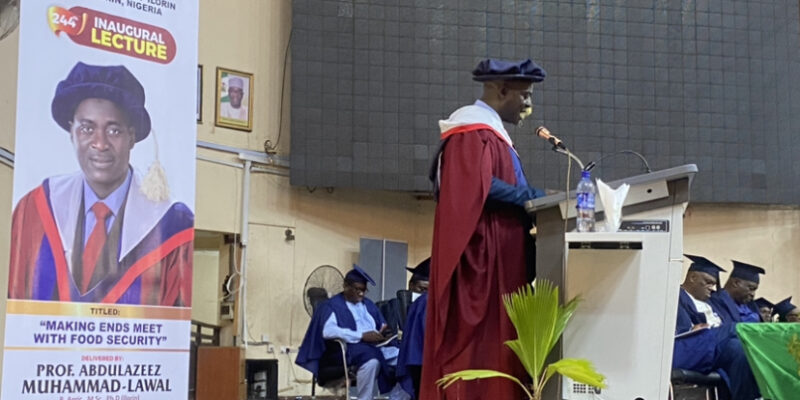



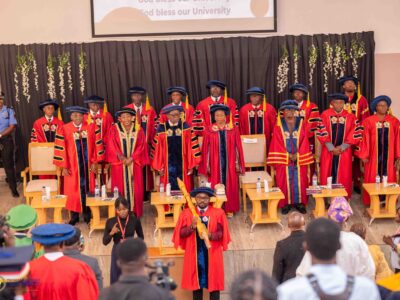
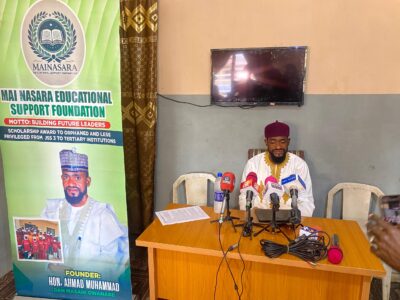
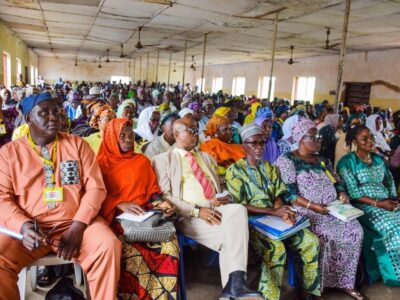
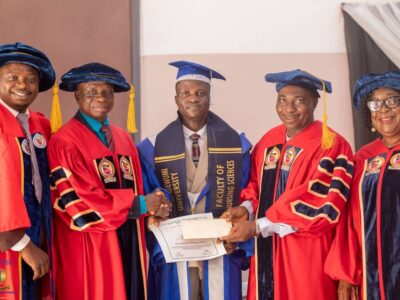

Comments